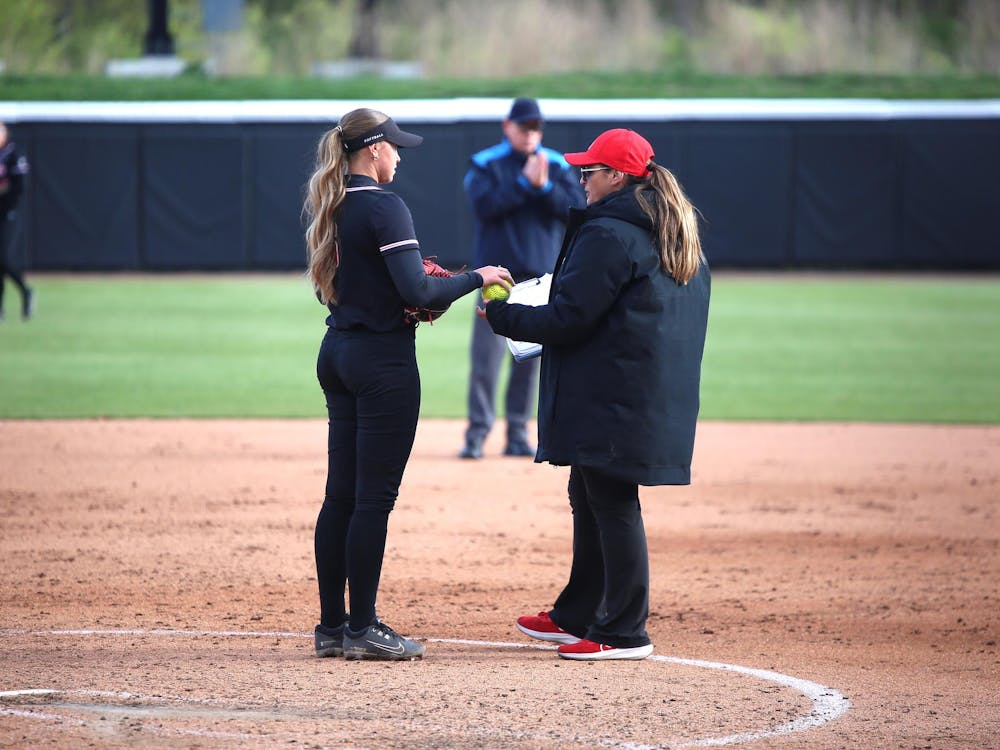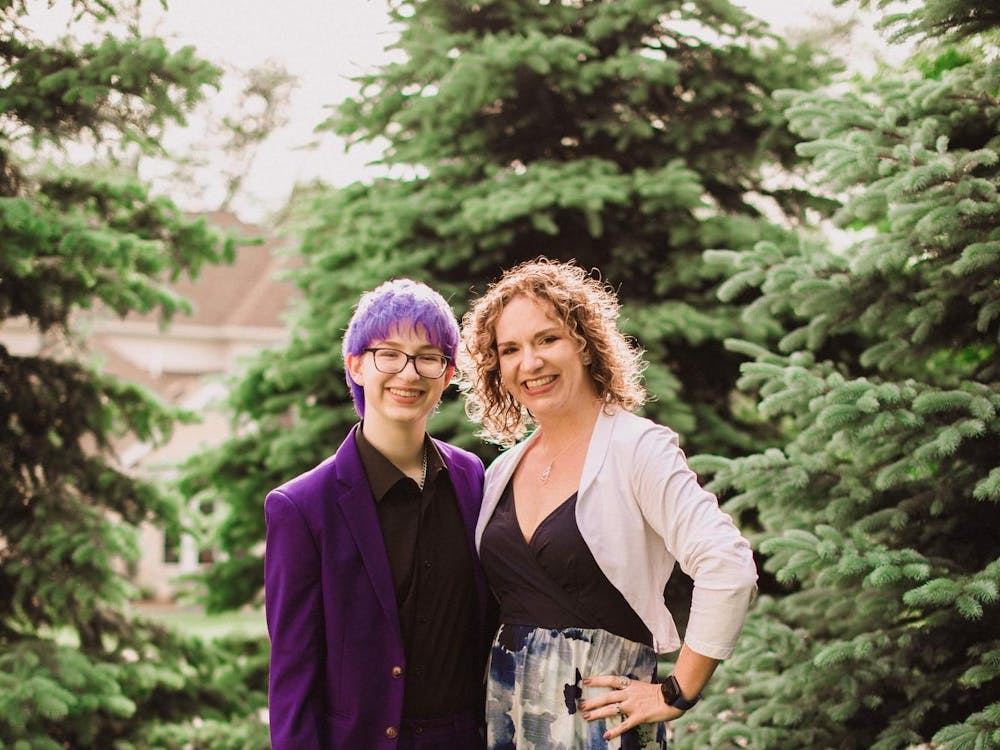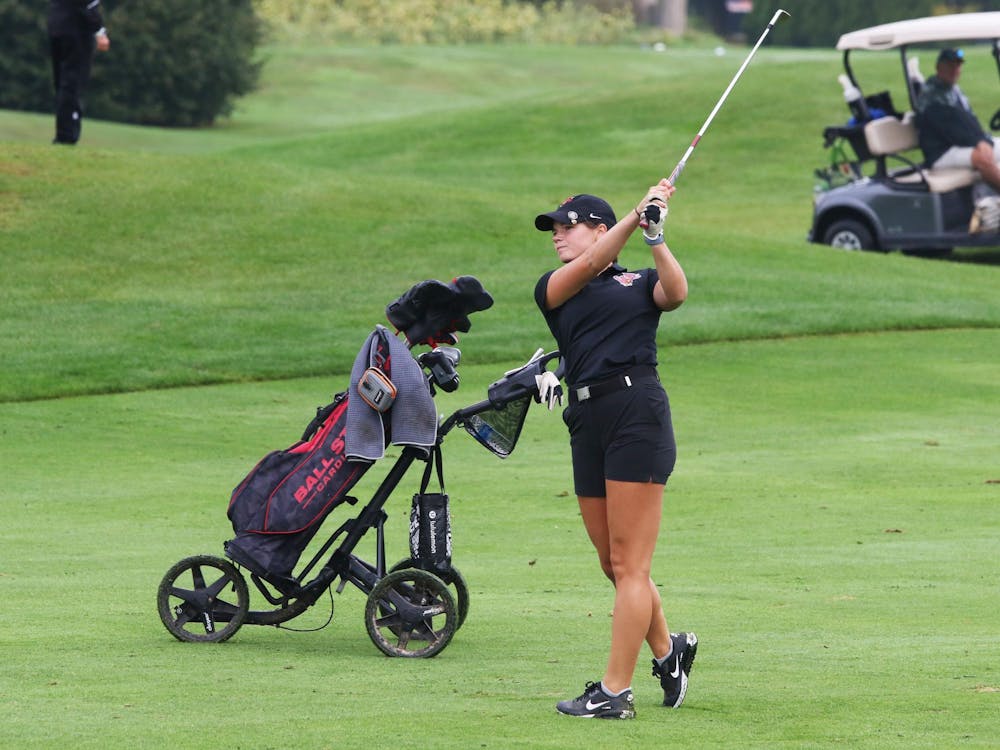Levi Todd is a sophomore English major and writes 'Leave it to Levi' for the Daily News. His views do not necessarily agree with those of the newspaper. Write to Levi at lctodd@bsu.edu.
My friends used to know where I was on campus based on where my bike was parked. It was hard to miss because I had wrapped the black frame in multicolored neon tape a) because it looked rad as hell and b) to deter bike thieves. When I brought Ferdinand (yes, he has a name) to Ball State, I got a lot of compliments, and I enjoyed hearing “Oh! You’re rainbow bike guy!” from passersby when I locked it up.
Not everyone loved it. I got called “f****t” and “c**k sucker” on the road by guys driving past in cars at least once a month, and more often during the summer when I biked to work in Chicago. I think the brightly colored tape often got interpreted as a rainbow flag (a happy accident), and several guys took this as an invitation to shout obscene things. It didn’t bother me too much, but each time I quietly hoped the driver was sober and not outrageously homophobic.
I was very aware of how vulnerable I was on my bike next to a moving ton of steel. One driver revved his engine after his buddies shouted “Nice bike, p***y.” Another night, I flipped off a driver after he shouted a slur at me, and he screeched the car to a halt as I quickly took a turn into an alleyway.
 |
|---|
I have been conditioned to tie these slurs with threats of violence. They are the same slurs that were used to bully me in junior high. There’s the cliche that “sticks and stones may break my bones, but words can never hurt me.” What’s ignored is that words are what often preface the stones.
Political correctness is one of this election’s many buzzwords. Ted Cruz claimed in a debate that “Political correctness is killing people.” At a recent campus event, political correctness became a big talking point, despite its lack of relevance to the event’s topic of service.
Opposers of “PC culture” claim that political correctness impinges their freedom of speech. What I think they mean is that it challenges their right to use slurs and derogatory phrases against others. And if that’s a right people want to keep, it’s just as much a right for others to challenge them.
We often wonder how Donald Trump has reached such a level of success while being openly sexist, racist, and homophobic. Here’s how: prejudice isn’t spontaneous. It starts as a seed and grows when society allows it to. I don’t think that the guys shouting at me from their cars suddenly decided to be homophobic. I think they grew up in a school where “f****t” was used as the ultimate insult against other guys. I think that their relatives and peers said, “That’s so gay” to describe stupidity or unfairness. I think that by internalizing the verbal homophobia surrounding them, they began to equate queerness as a threat to masculinity. And I think that if I pointed this out to them, they would claim that they had the freedom of speech to say whatever they want.
They’re right. We all have “the right” to say whatever we want. But we can’t ignore that this freedom also leads to very real violence. When our discriminatory speech goes unchecked, it makes the speaker feel validated and unchallenged in their prejudice.
A society that mocks the plight of the transgender community and dismisses their terms/pronouns paves the way to a high rate of homicide and suicide among transgender individuals. A society that denies police brutality and labels victims and protesters as “thugs” endorses racism and allows a vicious cycle to continue.
My point is that yes, freedom of speech is inherently important. But we can’t claim that political correctness is trivial or detrimental. We’re not asking to be coddled. People that speak up against others using slurs or discriminatory statements are not trying to smother anyone’s freedom of speech. They’re trying to put a roadblock on a path that very easily (and usually) leads to active discrimination, oppression and/or violence. Words aren’t insignificant. They’re a dangerous spark that can be either blown out or fanned to a blaze.





